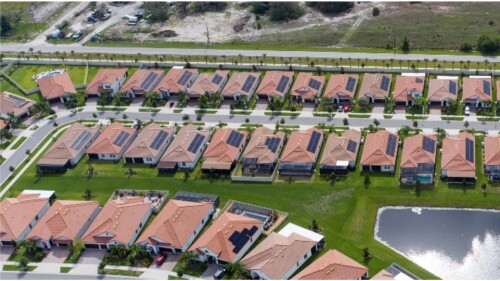When it comes to the best and worst markets for office and retail development in Europe, it’s a case of “which markets you can do development in and which markets you can’t,” says Alexander Otto, chief executive of German developer ECE Group.
Large, stable markets like Germany and Poland are locations where new assets can be developed; in countries like Italy, Spain, and Portugal, however, where there are concerns about sovereign debt, new development is substantially more difficult. And Greece is altogether off the radar for developments, except for small projects that might already be underway.
“For one, demand isn’t there and also finance is difficult to obtain [in southern Europe]. Countries that have to deal with their debt issues will take a while to get out of it,” says Otto, a ULI member.
There are selected development opportunities to be found in the right locations in both the U.K. and France, he says. However, property agent Savills reports that U.K. commercial development activity fell at its sharpest rate in 11 months in August.
Savills’ head of building consultancy, Michael Pillow, explains: “Worsening economic data in August led to a further decline in developers’ confidence about the future. However, refurbishment activity continued to rise, reflecting its perceived lower risk.”
Development is heavily dependent on bank financing, which has been restricted for speculative projects for some time now. Not only is it extremely tough to obtain financing for development in southern Europe, debt is also limited for the purchase of some existing stock unless vendor financing is on offer.
“In the last 60 days, the availability of financing has been drying out. Therefore, only very sound projects with very high pre-leasing rates will obtain financing in this environment,” says Otto.
He adds: “Development is particularly challenging in the retail sector because retailers are under pressure. Also, expansion plans for existing assets will be cut back.”
On the other hand, the apartment sector looks robust and is viewed as one of the strongest sectors for development at the moment. This is driven by significant demand for rental units due to a continuing demographic trend for more single-person households. As a result, Otto identifies German cities like Hamburg and Munich as having sound development potential.
With the development sector overall always hit hardest in times of economic struggle, it is not surprising that Otto expects progress to remain slow over the next year. Yet, he doesn’t necessarily view this negatively as it will encourage investors to “price in risk correctly—something that was not always done in the past. This will form the basis for a much-better-performing real estate market.”
Otto’s advice to potential developers is to “make sure the project you are developing will be viable in the long term because investors are becoming more and more professional and can distinguish between projects which might have a good current leasing status, but might not be viable in the future.”
Undoubtedly, it is in the large, stable markets that developments will thrive while southern Europe is a “no go” owing to concerns about sovereign debt and a lack of available financing.




